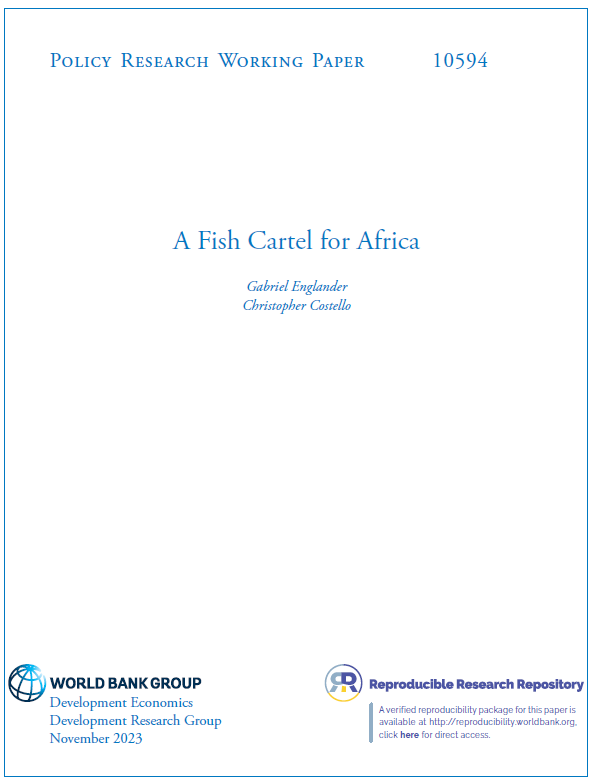Reproducibility package for A Fish Cartel for Africa
Overview
Many countries sell fishing rights to foreign nations and fishers. Although African coastal waters are among the world’s most biologically rich, African countries earn much less than their peers from selling access to foreign fishers. African countries sell fishing access individually (in contrast to some Pacific countries who sell access as a bloc). We develop a bilateral oligopoly model to simulate the effects of an African fish cartel. The model shows that wielding market power entails both ecological and economic dimensions. Africa would substantially restrict access catch, which raises biomass by 16%. But this also confers economic benefits to all African nations, raising profits by an average of 23%. These benefits arise because market power shifts from foreign buyers to African sellers. While impediments to sustainable development like corruption are hard to change in the medium-term, deeper African integration is an already-emerging solution to African countries’ economic and ecological challenges.
Reproducibility Package
| Repository name | URI |
|---|---|
| Reproducible Research Repository (World Bank) | https://reproducibility.worldbank.org |
Reproducibility
Paper exhibits were reproduced in one computer with the following specifications:
• OS: Windows 10 Enterprise, version 21H2
• Processor: Intel(R) Xeon(R) Gold 6226R CPU @ 2.9GHz (20 CPUs)
• Memory available: 128 GB
• Software version: R 4.2.1
~75 hours runtime. This can be reduced by using more cores in some of the scripts of the reproducibility package. The README describes how to modify the number of cores used for computation.
Data
All data is public and contained in the reproducibility package. Please refer to the README file for full details.
Description
| Author | Affiliation | |
|---|---|---|
| Gabriel Englander | World Bank | aenglander@worldbank.org |
| Christopher Costello | Environmental Markets Lab, Bren School of Environmental Science and Management | costello@bren.ucsb.edu |
2023-09
Scope and coverage
| Location | Code |
|---|---|
| Africa | AFR |
Disclaimer
The materials in the reproducibility packages are distributed as they were prepared by the staff of the International Bank for Reconstruction and Development/The World Bank. The findings, interpretations, and conclusions expressed in this event do not necessarily reflect the views of the World Bank, the Executive Directors of the World Bank, or the governments they represent. The World Bank does not guarantee the accuracy of the materials included in the reproducibility package.
Access and rights
| Name | URI |
|---|---|
| Modified BSD3 | https://opensource.org/license/bsd-3-clause/ |
Contacts
| Name | Affiliation | |
|---|---|---|
| Gabriel Englander | World Bank | aenglander@worldbank.org |
| Reproducibility WBG | World Bank | reproducibility@worldbank.org |
Information on metadata
| Name | Abbreviation | Affiliation | Role |
|---|---|---|---|
| San Martin | LESM | World Bank | Junior data scientist |
2023-10-11
1
